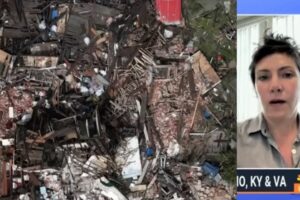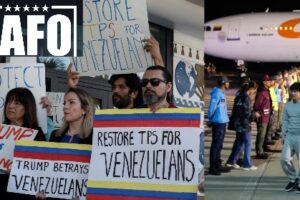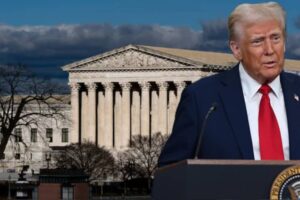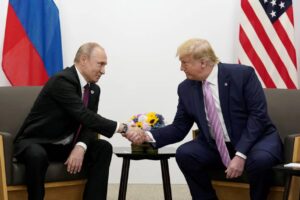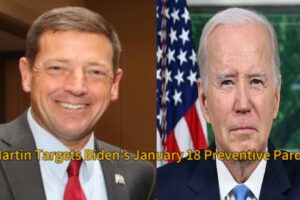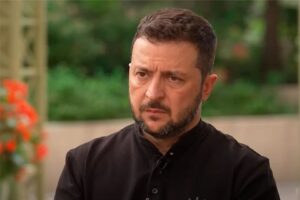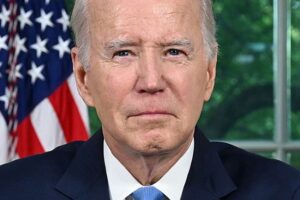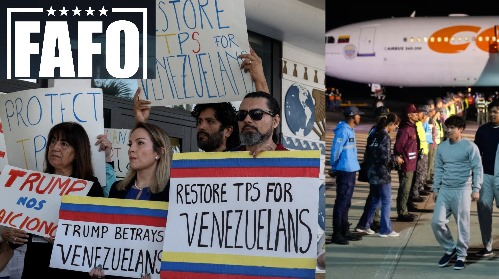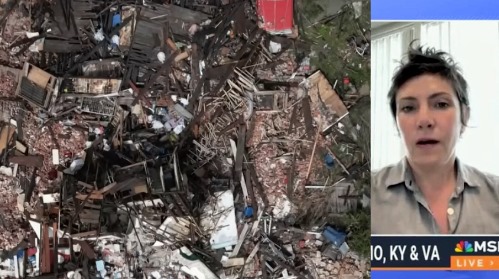Doral, Florida—often dubbed “Doralzuela” for its dense population of Venezuelans, —has long been a political stronghold for conservative immigrant voters, especially those escaping the authoritarian rule of Nicolás Maduro. In the 2024 election, Donald Trump secured 62% of the vote in Doral, a marked increase driven largely by Venezuelan American support. These voters believed in Trump’s hardline approach against the Maduro regime and his promises to protect law-abiding immigrants.
But that sense of alignment has now turned to disbelief and despair. The Trump administration’s recent revocation of Temporary Protected Status (TPS) for Venezuelans has devastated the very community that once embraced him. “They told us we would be safe,” said Adelys Ferro, a prominent community advocate. “Now, we feel beyond betrayed.”
From Promise to Betrayal: Campaign Assurances Crumbled for Venezuelans
Throughout the 2024 campaign, Republican officials repeatedly assured immigrant communities that lawful, documented individuals would not be targeted in Trump’s immigration agenda. These reassurances formed the basis of support for many Venezuelan Americans who believed their future in the U.S. was secure.
However, the termination of TPS for the Florida Venezuelans has left thousands in limbo. For Ferro and others, the sense of betrayal cuts deep—not only politically but personally. “We supported a man who claimed to be on our side,” she lamented. “Now, he’s turned his back on us in the cruelest way possible.” This sense of abandonment is rapidly shifting political loyalties in Doral and could reshape the area’s electoral dynamics.
Human Toll: Venezuelans Personal Stories of Fear and Uncertainty
Beyond political shifts, the real impact of the TPS revocation lies in the lives disrupted and futures thrown into doubt. Carol Durán Pérez, a mother and former journalist who fled Venezuela due to political persecution, now fears for her safety and that of her son. “I thought Trump would only target criminals,” she said tearfully. “But we are professionals, working, contributing—now we’re at risk too.”
For Carol and thousands like her, the possibility of deportation is more than a legal issue; it is a matter of life and death. Many of these individuals have built homes, careers, and families in the United States. “It’s not just a piece of paper—it’s the right to exist without fear,” she added.
Legal and Humanitarian Crisis: Supreme Court Clears the Way
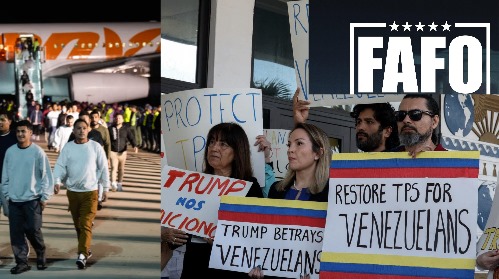
The Supreme Court’s decision to uphold the termination of TPS paves the way for the deportation of approximately 350,000 Venezuelans. Critics argue that the ruling ignores the dire humanitarian crisis still unfolding in Venezuela, where economic collapse, political oppression, and violence remain rampant.
Human rights organizations and immigration advocates warn that returning Venezuelans to such conditions is not only inhumane but also reckless. “This is a policy failure wrapped in legal justification,” said an immigration analyst. “We are throwing people into chaos, despite their clear contributions to our society.” For many Venezuelans in the U.S., the ruling is a brutal reminder of their precarious status—one that political support alone could not safeguard.
Trump’s Policies and the Erosion of Support in Red Strongholds
The TPS revocation for Venezuelans is not an isolated event. Across the country, several Trump administration policies have harmed communities that were once key to his electoral success. In rural Mississippi, delays in federal disaster relief have left towns like Tylertown struggling to recover from tornado damage. In Missouri, St. Louis Mayor Cara Spencer criticized FEMA’s lack of support after a similar disaster, linking it to staff cuts under Trump’s reform plans.
Likewise, farmers in Republican-leaning states such as Wisconsin have suffered under Trump’s trade wars. Retaliatory tariffs from China slashed soybean exports, leading to economic strain in already vulnerable agricultural communities. “It was like a perfect storm—bad weather, bad policy, and no help,” one Wisconsin farmer said. As these policies take their toll, the base that once lifted Trump is showing signs of wear.
Looking Ahead: A Reckoning for Trump and His Former Loyalists
As the 2028 political horizon comes into view, many in Doral and similar communities are rethinking their loyalties. For Venezuelan Americans, the experience of betrayal has triggered a reassessment not just of Trump, but of the broader Republican platform. “We voted with hope,” said a local pastor. “Now, we’re voting with pain—and memory.”
This reckoning could have significant electoral consequences. If Trump’s policies continue to alienate those who once championed his cause, the very foundation of his support could erode. For many in “Doralzuela,” the message is clear: promises made must be promises kept—or political debts will be repaid at the ballot box.

